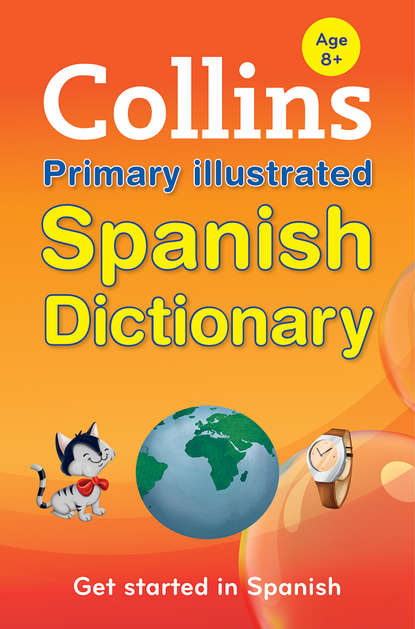
Полная версия:
Collins Primary Dictionaries
envy ¡Qué envidia! I’m so jealous! Le tiene envidia a Ana. He’s jealous of Ana.
envidiar VERB
to envy ¡No te envidio! I don’t envy you!
envolver VERB
to wrap up ¿Quiere que se lo envuelva? Would you like me to wrap it up for you?
envuelto VERB ▷see envolver Estaba envuelto con papel de embalar. It was wrapped in brown paper.
el equipaje NOUN
luggage equipaje de mano hand luggage
el equipo NOUN
team

un equipo de baloncesto a basketball team
equivocado (FEM equivocada) ADJECTIVE
wrong Estás equivocada. You’re wrong. Elena me dio el número equivocado. Elena gave me the wrong number.
equivocarse VERB
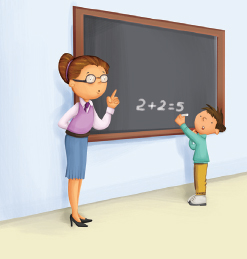
1 to make a mistake Perdona. Me equivoqué. Sorry. I made a mistake.
2 to be wrong Si crees que voy a dejarte ir, te equivocas. If you think I’m going to let you go, you’re wrong. Perdone, me he equivocado de número. Sorry, wrong number.
era VERB ▷see ser Era yo. It was me.
eres VERB ▷see ser Eres muy amable. You’re very kind.
el erizo NOUN
hedgehog
el error NOUN
mistake Fue un error contárselo a Lola. Telling Lola about it was a mistake. Cometí muchos errores en el examen. I made a lot of mistakes in the exam.
es VERB ▷see ser Es un árbol. It’s a tree.
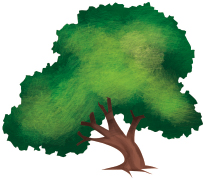
esa ADJECTIVE ▷see ese Dame esa raqueta. Give me that racket.
ésa PRONOUN ▷see ése Ésa es mía. That one is mine.
la escalera NOUN
stairs bajar las escaleras to go down the stairs una escalera mecánica an escalator
el escándalo NOUN
scandal La pelea produjo un gran escándalo. The fight caused a huge scandal.
escaparse VERB
to escape El ladrón se escapó de la cárcel. The thief escaped from prison.
la escayola NOUN
plaster Mañana me quitan la escayola. I’m getting my plaster taken off tomorrow.
la escoba NOUN
broom
escocés escocesa (MASC PL escoceses)
escocés can be an adjective or a noun.
A ADJECTIVE
Scottish
B MASC/FEM NOUN
un escocés a Scotsman una escocesa a Scotswoman los escoceses Scottish people
Escocia FEM NOUN
Scotland
escoger VERB
to choose Yo escogí el azul. I chose the blue one.
escolar (FEM escolar) ADJECTIVE
school el uniforme escolar the school uniform
esconder VERB
to hide Lo escondí en el cajón. I hid it in the box. Me escondí debajo de la cama. I hid under the bed.
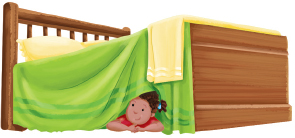
escondidas FEM PL NOUN
a escondidas in secret Se ven a escondidas. They meet in secret.
el escondite NOUN
jugar al escondite to play hide-and-seek
la escopeta NOUN
shotgun
escribir VERB
to write Les escribí una carta. I wrote them a letter. Escribe pronto. Write soon. Nos escribimos de vez en cuando. We write to each other from time to time. ¿Cómo se escribe tu nombre? How do you spell your name?
escrito (FEM escrita) ADJECTIVE
written un examen escrito a written exam
el escritor la escritora NOUN
writer Pablo es escritor. Pablo’s a writer.
escuchar VERB
to listen Juan escuchaba con atención. Juan was listening attentively. Me gusta escuchar música. I like listening to music.
la escuela NOUN
school Hoy no tengo que ir a la escuela. I don’t have to go to school today. la escuela primaria primary school
escupir VERB
to spit
ese (FEM esa, MASC PL esos) ADJECTIVE
that Dame ese libro. Give me that book. Trae esas sillas aquí. Bring those chairs over here.
ése (FEM ésa, MASC PL ésos) PRONOUN
that one Ése es mío. That one is mine. Ésos de ahí son mejores. Those ones over there are better. ¿Cuánto valen ésos? How much are those?
Language tip
Traditionally, the pronouns ése, ésa, ésos, and ésas were written with an accent to distinguish them from the unaccented adjective forms. Nowadays, you don’t have to give the accents unless the sentence would be confusing otherwise.
esforzarse VERB
to make an effort Tienes que esforzarte si quieres ganar. You have to make an effort if you want to win.
el esfuerzo NOUN
effort Tuve que hacer un esfuerzo para aprobar el examen. I had to make an effort to pass the exam.
el esguince NOUN
sprain Me hice un esguince en el tobillo. I sprained my ankle.
la ESO ABBREVIATION (= Enseñanza Secundaria obligatoria)
Did you know…?
ESO is the compulsory secondary education course done by 12 to 16 year-olds.
eso PRONOUN
that Eso es mentira. That’s a lie. Por eso te lo dije. That’s why I told you. ¡Y eso que estaba lloviendo! And it was raining and everything!
¡Eso es! That’s it!
esos ADJECTIVE ▷see ese Dame esos lápices. Give me those pencils.
ésos PRONOUN ▷see ése Ésos son míos. Those ones are mine.
el espacio NOUN
1 room El piano ocupa mucho espacio. The piano takes up a lot of room.
2 space Deja más espacio entre las líneas. Leave more space between the lines.
la espada NOUN
sword
Language tip
Be careful! espada does not mean spade.
la espalda NOUN
back Estaba tumbada de espaldas. She was lying on her back.
España FEM NOUN
Spain
español
español can be an adjective or a noun.
A (FEM española) ADJECTIVE
Spanish
B MASC/FEM NOUN
español/española Spaniard los españoles the Spanish
C MASC NOUN
Spanish ¿Hablas español? Do you speak Spanish?
especial (FEM especial) ADJECTIVE
special Fue un día muy especial. It was a very special day.
especialmente ADVERB
1 especially Me gusta mucho el pan, especialmente el integral. I love bread, especially wholemeal bread.
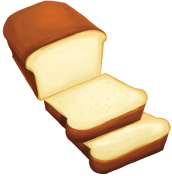
2 specially un vestido diseñado especialmente para ella a dress designed specially for her
la especie NOUN
species
el espectador la espectadora NOUN
spectator los espectadores the audience
el espejo NOUN
mirror

Me miré en el espejo. I looked at myself in the mirror.
esperar VERB
1 to wait Espera en la puerta, ahora mismo voy. Wait at the door. I’m just coming.
2 to wait for No me esperéis. Don’t wait for me. Me hizo esperar una hora. He kept me waiting for an hour. Fuimos a esperarla a la estación. We went to the station to meet her.
3 to expect Llegaron antes de lo que yo esperaba. They arrived sooner than I expected.
4 to hope Espero que no sea nada grave. I hope it isn’t anything serious. ¿Vendrás a la fiesta? — Espero que sí. Are you coming to the party? — I hope so. ¿Crees que Carmen se enfadará? — Espero que no. Do you think Carmen will be angry? — I hope not.
la espina NOUN
1 thorn
2 bone
la esponja NOUN
sponge
la esposa NOUN
1 wife
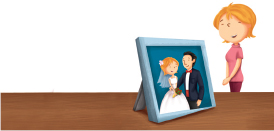
2 las esposas handcuffs
el esposo NOUN
husband
la espuma NOUN
foam
el esqueleto NOUN
skeleton el esquiador la esquiadora NOUN
skier
esquiar VERB
to ski ¿Sabes esquiar? Can you ski?
la esquina NOUN
corner
esta (FEM esta) ADJECTIVE ▷see este Esta pelota es mía. This ball is mine.
ésta PRONOUN ▷see éste Mi casa es ésta. My house is this one.
está VERB ▷see estar Está frío. It’s cold.
la estación (PL las estaciones) NOUN
1 station la estación de autobuses the bus station la estación de ferrocarril the railway station
2 season las cuatro estaciones del año the four seasons of the year
estacionar VERB
to park
el estadio NOUN
stadium
los Estados Unidos NOUN
the United States en Estados Unidos in the United States
estadounidense ADJECTIVE, MASC/FEM NOUN
American
estallar VERB
to explode
el estanco NOUN
tobacconist’s
Did you know…?
In Spain, an estanco is recognizable by the brown and yellow ‘T’ sign that hangs over the door. As well as tobacco, they sell stamps and coupons for the football pools.
el estanque NOUN
pond
la estantería NOUN
1 shelves
2 bookshelves

estar VERB
1 to be Madrid está en el centro de España. Madrid is in the centre of Spain. Papá está en la cocina. Dad’s in the kitchen. ¿Dónde estabas? Where were you? ¿Está Mónica? Is Mónica there? ¿Cómo estás? How are you? Estoy muy cansada. I’m very tired. Estamos de vacaciones. We’re on holiday. Estamos a treinta de enero. It’s the thirtieth of January. Estábamos a 30°C. The temperature was 30°C. Estamos esperando a Manolo. We’re waiting for Manolo. María estaba sentada en la arena. María was sitting on the sand.
2 to look Ese vestido te está muy bien. That dress looks very good on you.
la estatua NOUN
statue
este
este can be an adjective or a noun.
A (FEM esta, MASC PL estos) ADJECTIVE
this este libro this book estas revistas these magazines
B MASC NOUN, ADJECTIVE
east el este del país the east of the country
Language tip
When it means ‘east’, the adjective este never changes its ending, no matter what it describes.
en la costa este on the east coast
éste (FEM ésta, MASC PL éstos) PRONOUN
this one Me gusta más éste. I prefer this one. Éstos son muy caros. These ones are very expensive. ¿Cuánto valen éstos? How much are these?
Language tip
Traditionally, the pronouns éste, ésta, éstos and éstas were written with an accent to distinguish them from the unaccented adjective forms. Nowadays, you don’t have to give the accents unless the sentence would be confusing otherwise.
esté VERB ▷see estar Espero que no esté muy lejos. I hope it won’t be too far.
estimado (FEM estimada) ADJECTIVE
Estimado Sr. Pérez: Dear Mr Pérez,
Language tip
Did you notice that there’s a colon (:) at the end of the opening line of a letter in Spanish, not a comma?
estirar VERB
to stretch No quiero estirar el jersey. I don’t want to stretch my jumper.
esto PRONOUN
this ¿Para qué es esto? What’s this for?
el estómago NOUN
stomach Me dolía el estómago. I had a stomachache.
estorbar VERB
to be in the way Las maletas estorban aquí. The cases are in the way here.
estornudar VERB
to sneeze
estos PL ADJECTIVE ▷see este Estos libros son bastante baratos. These books are quite cheap.
éstos PL PRONOUN ▷see éste Éstos son míos. These ones are mine.
estoy VERB ▷see estar Estoy cansado. I’m tired.

estrecho (FEM estrecha) ADJECTIVE
1 narrow
2 tight La falda me queda muy estrecha. The skirt is very tight on me.
la estrella NOUN
star una estrella de cine a film star una estrella de mar a starfish
estreñido (FEM estreñida) ADJECTIVE
constipated
estropeado (FEM estropeada) ADJECTIVE
1 broken
2 broken down
estropear VERB
1 to break
2 to ruin La lluvia nos estropeó las vacaciones. The rain ruined our holidays.
■ estropearse to break Se nos ha estropeado la tele. The TV’s broken.
el estuche NOUN
case
el/la estudiante NOUN
student
estudiar VERB

1 to study Quiere estudiar medicina. She wants to study medicine.
2 to learn Tengo que estudiar cuatro lecciones para el examen. I have to learn four lessons for the exam.
el estudio NOUN
Ha dejado los estudios. He’s given up his studies.
la estufa NOUN
heater una estufa eléctrica an electric heater
estupendo (FEM estupenda) ADJECTIVE
great Pasamos unas Navidades estupendas. We had a great Christmas. ¡Estupendo! Great!
la estupidez (PL las estupideces) NOUN
No dice más que estupideces. He just talks rubbish. Lo que hizo fue una estupidez. What he did was stupid.
estúpido estúpida
estúpido can be an adjective or a noun.
A ADJECTIVE
stupid
B MASC/FEM NOUN
idiot Ese tío es un estúpido. That guy’s an idiot.
estuve VERB ▷see estar Estuve una semana de vacaciones. I was on holiday for a week.

la etiqueta NOUN
label
el euro NOUN
euro

Europa FEM NOUN
Europe
el europeo (FEM la europea) ADJECTIVE, NOUN
European
evitar VERB
1 to avoid Quiero evitar ese riesgo. I want to avoid that risk. Intento evitar a Carmen. I’m trying to avoid Carmen. No pude evitarlo. I couldn’t help it.
2 to save Esto nos evitará muchos problemas. This will save us a lot of problems.
exacto (FEM exacta) ADJECTIVE
exact el precio exacto the exact price
exagerado (FEM exagerada) ADJECTIVE
exaggerated una descripción exagerada an exaggerated description ¡No seas exagerado, el pez no era tan grande! Don’t exaggerate! The fish wasn’t that big. El precio me parece exagerado. The price seems far too high.
el examen (PL los exámenes) NOUN
exam
examinar VERB
to examine El médico la examinó. The doctor examined her. Mañana me examino de inglés. Tomorrow I’ve got an English exam.
excelente (FEM excelente) ADJECTIVE
excellent
excepto PREPOSITION
except for todos, excepto Juan everyone, except for Juan
excluyendo VERB ▷see excluir Excluyendo a mis padres, somos tres. Not counting my parents, there are three of us.



